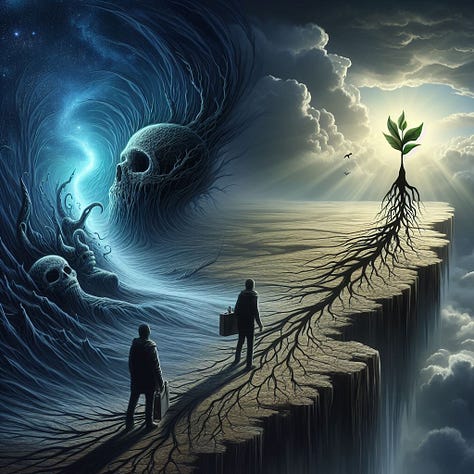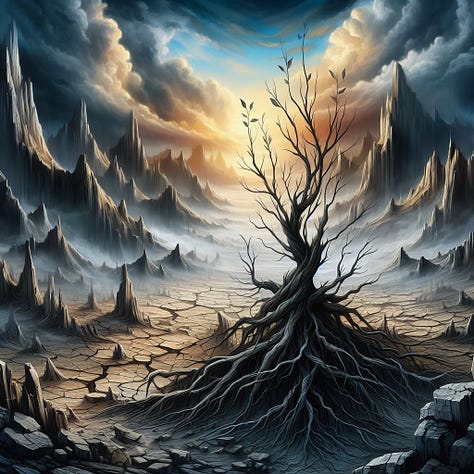In the journey toward radical resilience, we come to understand that attending to our spirituality is not just a choice but a necessity. Life's trials and tribulations, those demanding radical resilience, often carry the weight of pain and suffering. Yet, we find solace in spiritual support, sometimes from the embrace of familiar souls, sometimes from the unexpected kindness of strangers.
Our reservoir of resilience is filled by a diverse array of sources—be it the comforting rituals of our faith, the guiding principles of a twelve-step program, or the serene practices of meditation like tai chi, mindfulness, or yoga. However, we learn that not all paths lead to this wellspring of inner strength. Any belief system that casts judgment, enforces rigidity, or breeds exclusivity becomes a barrier on the road to resilience.
The spirituality that nourishes radical resilience is one of inclusivity and interconnectedness. It honors the dignity of every being, recognizing the profound ties between all life forms, the environment, and the universe. It perceives the Higher Power as a force of love and kindness. Here, honesty, self-awareness, compassion, forgiveness, and acceptance are not just values; they are pillars upon which resilience stands tall.
When we turn inward, seeking meaning and purpose through prayer, meditation, or spiritual reflection, we are cultivating this radical resilience. In these moments of introspection, we open ourselves to transformation. Our spiritual journey alters our self-perception, unveiling layers of gratitude and compassion that bind us to others.
Scannell urges us to understand that our spirituality must evolve, must deepen, to weather life's storms. The simple beliefs of childhood often prove insufficient when confronted with life-altering adversity. As we grapple with the aftermath of such events, searching for meaning in our new reality, we require a spirituality that delves into the depths of our being.
Even for those who have forged a strong connection to the sacred, moments of anguish and darkness can descend. These so called "swampland visitations," are painful encounters that, paradoxically, enrich our spiritual landscape. In the resilient framework of spirituality, these trials become opportunities for growth. Life demands of us an expansion, a stretching beyond our comfort, as we navigate these depths.
Our spirituality, when nurtured and matured, becomes not just a shield against adversity but a beacon guiding us through the darkest nights. It teaches us that growth often emerges from the depths of despair, that resilience is not merely enduring but evolving. Life, in its unyielding way, asks more of us, and through our spirituality, we find the strength to answer its call.



(adopted from: James Hollis, Finding Meaning in the Second Half of Life)




